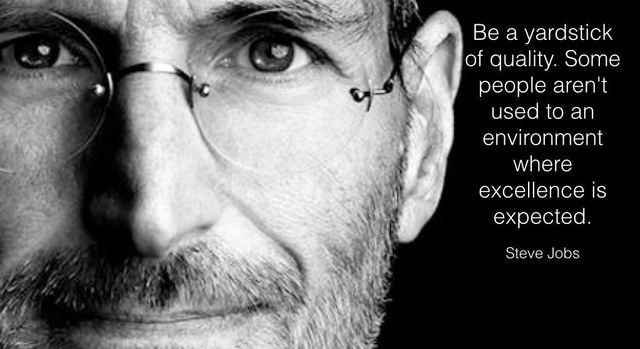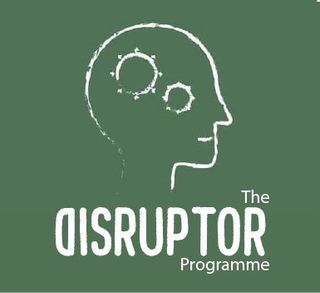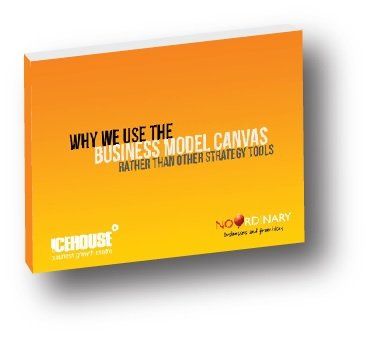
1. Be yourself
We’d all like to be an effective leader and many of us read a lot of books on leadership and have tried to model ourselves on the great leaders. Trouble is, most of us fail. Why? Because trying to be someone else never feels real. And your team, whether in business or sports, invariably picks up that it’s not real. Mark MacLeod, who for many years held leadership roles in successful start-ups such as Shopify and Freshbooks, put it beautifully when he said:
“Despite all this investment in learning about what it means to be a leader, I have to say that looking back I have led best when I have not tried to ‘be’ something else and instead have just been my authentic self.”

Now, I’m not saying here that it’s not possible to improve your leadership skills, simply that you have to remain true to your yourself. The late Steve Jobs was an example of this. He wasn’t a leader in the conventional style you read about in leadership books. He wasn’t known for his consultative or consensus-building approach. He demanded nothing less than excellence from himself and his team, and could be abrasive and downright rude when he didn’t get it.
2. Be a role model
“Perhaps the most important thing you do as a good leader is to be an excellent role model,” says self-development guru Brian Tracy. Was Jobs an excellent role model? Not in the sense that Tracy is referring to. But he was passionate about his vision and very effective at communicating this to shareholders, customers and team. And this produced results - not just in terms of Apple’s financial success, but in the classic leadership indicators of low employee turnover and high team motivation.
So Brian Tracy’s quote might be better put as “Perhaps the most important thing you do as a leader is to be a role model of the things that are important to you in the business”. Too many leaders have a “do as I say, not what I do” mentality. I’ve seen bosses rock into work in the mid-morning and then wonder why their employees aren’t punctual. If you want your employees to show up for work on time, you need to show up on time. If you want them to work hard, you have to work hard. If you want them to be collaborative and open, you have to be collaborative and open.
Simple.

Too many leadership books treat leadership as a ‘one size fits all’ thing. It isn’t. It’s more complicated than that - mainly because we’re all different, and that includes leaders themselves. The thousands of personality profiling tools out there - think Myers-Briggs, DISC, Keirsey Bates, NLP et al - have two key benefits.
One is that they make the selection process simpler and less risky for lazy or incompetent employers and employment agents. The second - and this is the real benefit - is that they emphasise that we’re all different, with different temperaments, communication styles, decision-making methods and working modes.
But there are two big problems with personality profiling. One is that despite what the profilers tell you, it doesn’t take a rocket scientist to figure out what the ‘right’ answers are. The Economist recently quoted the director of Cambridge University’s Psychometrics Centre, John Rust, as saying that most employers usually just end up “selecting the people who know what the right answers are”. The second problem is, when you are given all this valuable information on your team’s personalities, what do you do with it?
The biggest challenges for leaders are building teams of people with the diverse range of attitudes and skills needed to run their organisations and then get the most from each of those individuals as well as the teams as a whole. This starts with hiring the right people. By ‘right’ I mean people with the necessary attitudes and skills needed for their roles.
This is always a lottery. But you can reduce your risks and improve your chances of winning by asking the right questions, talking to referees, conducting peer interviews, and, yes I’ll say it, using profiling. But not just personality profiling. Personality is how people present themselves to the world, but it doesn’t say anything about their core values, aptitude and behaviour. For this you need to take a broader approach.

3. Understand that it's not just about the money
This may be hard to believe, but behaviourist Daniel Pink says studies show that money is only the most important factor to those in lower-paying jobs. There are three more important factors.
1. Purpose:
The desire to do something meaningful and important. Pink says businesses that only focus on profits without valuing purpose will end up with poor customer service and unhappy employees. What's the purpose of your business? An employment consultant who hired engineers for Steve Jobs said about Apple: "It is a happy place in that it has true believers. People join and stay because they believe in the mission of the company, even if they aren't personally happy."
2. Autonomy:
Our desire to be self directed. Autonomy increases engagement over compliance.
3. Mastery: The urge to get better at stuff simply because we like to get better at stuff. This is why people practice the piano or their golf swing for hours without any intention of making money from it. It's about satisfaction.

4. To gain commitment, get your people involved in the business
We all want commitment from our employees but let's get real about this. They won't ever be 100% committed to your business unless they have skin in the game. There's an old saying that in a plate of bacon and eggs, the chicken is involved but the pig is committed. Even a profit share scheme will never engender the kind of commitment that equity partners will have in the business. But the next best thing for building commitment is to give them a say, a real say, in how the business is run.
A recent Harvard study says that the make-or-break factor for being a successful leader comes down to one thing - active listening. The researchers found that it increases trust amongst teams, reduces conflicts, motivates others and inspires higher levels of confidence. However, it's not just the listening that's important, it's the understanding, openness, trust and commitment that underpins it.
Given that business is about solving customers' problems, it makes sense to empower - I don't like that word, but I can't think of any other that works as well here - your team members to solve your customers' problems, preferably on-the-spot before the problems start festering and the customers start telling everyone they know. Studies show that an immediate and positive response to complaints can not only turn disappointed customers around, but turn them into raving fans. And by solving customers' problems themselves, your team members gain a sense of purpose, autonomy and mastery.
It's worth noting, however, that too many leaders believe that showering team members with praise and positivity although involving your employees in your business means showing your appreciation and gratitude
doesn't mean you should lavish them with praise them. Involvement can mean frank and open criticism too.
And when leaders show their appreciation and gratitude to their team, you can be certain that those individuals will go above and beyond for that leader.

5. Get help
Being a leader is a complex and challenging role, even in smaller businesses. Smart leaders recognise this, understand that they have weaknesses as well as strengths, and use coaches and mentors to help them constantly improve their leadership skills.The really smart ones use consultants to look at their team in a fresh and unbiased way and advise them from an independent point of view on their leadership strategy.
As an experienced corporate manager, business owner and leadership consultant, I offer the following services to help you to inspire your team to optimal performance:
- Leadership and team development programmes
- People and team assessment
- Workshops, seminars and team-building events designed to meet your specific needs
- Leader counselling and mentoring
- Business and operations manuals and intranets
- Change management
I'm Robin La Pere, no ordinary business and franchise consultant, and a big part of my business is helping people like you to develop and improve their businesses. It's something I've become good at after many years of business leadership, ownership and consulting.
I've found that the key to successful business development is leadership. But although every leader is different, there are some universal truths of leadership that apply to the most effective leaders. One of these is the need to seek guidance and assistance to develop your leadership skills and those of your team - and that's where I come in as a leadership coach and mentor.
Need to improve your business?
I offer these services to help you manage disruption, prevent stalling and promote innovation in your business:
- Threat and opportunity evaluation
- Business model generation
- Strategy planning
- Key business driver analysis and development
- Conference and seminar presentations
- Innovation workshop facilitation
- Business improvement
- Business re-engineering
- ‘The Disruptor’ Programme (see below)

Are you facing new or greater competition? Is your industry being disrupted? Is your business growth in danger of stalling?
The best way to predict the future is to create the future. In today's fast-changing world, it's disrupt or be disrupted. The good news is that small to medium sized businesses can be more innovative and agile than large corporations. The Disruptor Programme has been developed specifically to help SME leaders to:
- empower them with the thinking and practical skills to face change and lead a more agile and innovative business
- gain insights in how their customers see value and where opportunities exist to take advantage of this
- examine the company’s competencies and culture in order to identify opportunities to improve and innovate
To arrange a free personal Initial Consultation with me on how The Disruptor Programme can help you to futureproof your company, contact me now on +64 9 360 6063 or Skype Noordinary1262 or send me your email address and I will get back to you within 24 hours.





